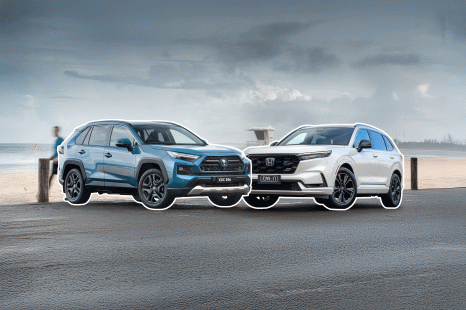

Andrew Maclean
Honda CR-V RS e:HEV vs Toyota RAV4 Edge Hybrid: Spec battle
6 Days Ago

Marketplace Journalist
When it comes to luxury vehicles, few people would place Hyundai near the likes of Mercedes-Benz or BMW.
That’s why Genesis exists – a luxury brand within the Hyundai Motor Group (HMG) that produces high-end vehicles, allowing the South Korean company to compete with well-established heavy hitters in the luxury space.
Spawned by the Hyundai Genesis sedan in the late 2000s, Genesis became a standalone marque in 2015 and currently has five models on the market – and another expected to launch in 2025.
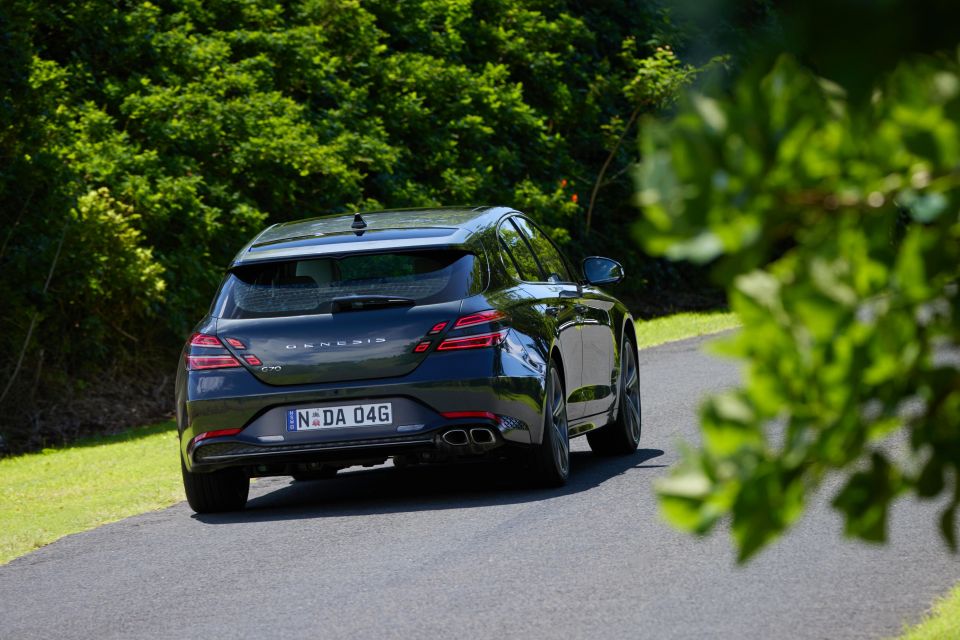
The company has previously confirmed its new vehicle launches from 2025 onwards will be electric, ahead of its switch to an EV-only lineup from 2030.
Some current models are expected to receive electric power in the coming years, and others could be on the chopping block very soon.
HMG has a new-generation EV platform in development, called eM, which will be capable of adapting to various applications and will allow the carmaker to cut costs by around 20 per cent.
The Korean giant is reportedly targeting ranges of up to 800km with batteries as large as 113.2kWh, coupled with motors of outputs ranging from 200kW to 450kW.
Vehicles on this new-generation platform will also support over-the-air updates and a higher level of autonomous driving.
The GV90 will be Genesis’ largest SUV yet, and it’s been reported it will enter production in December next year.
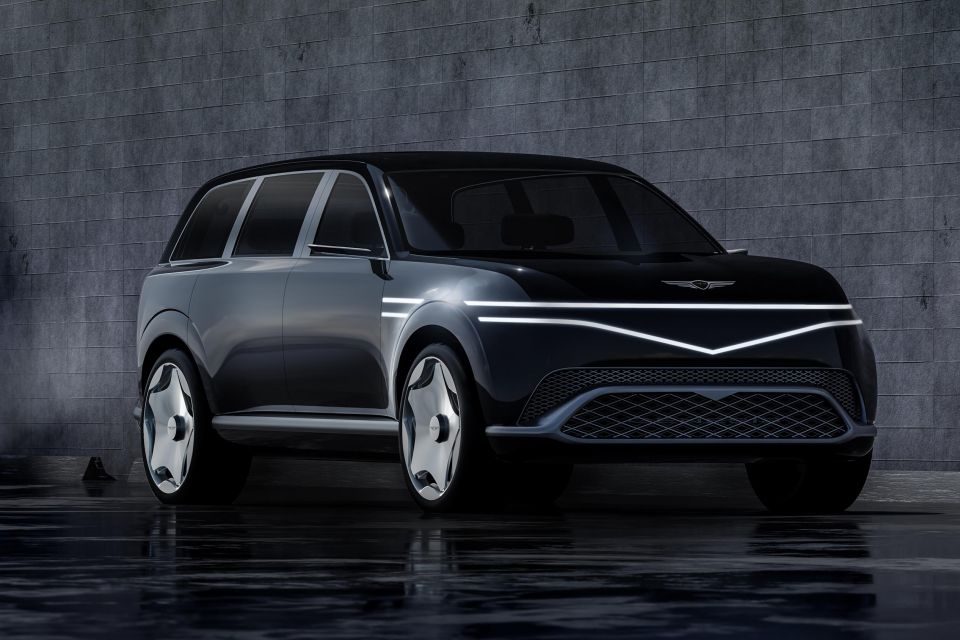
According to the Korean Car Blog, HMG sent a request for quotation (RFQ) to its major automative partners and detailed its plans to apply its next-generation eM EV platform to all of its models, starting with the flagship GV90.
In the RFQ, Hyundai estimated an annual production volume of around 21,000 units for the GV90.
While there aren’t details on any powertrains yet, the eM platform is touted to be an evolution of established E-GMP architecture underpinning most new Hyundai, Genesis and Kia electric models, including the Kia EV9.
The Genesis Neolun concept, revealed ahead of the New York motor show in March this year, is expected to be a preview of the upcoming GV90.
The flagship SUV is set to be an electric rival to the BMW X7 and Mercedes-Benz GLS.
Following the release of the flagship GV90, the second-generation GV80 is expected to launch with only electric power.
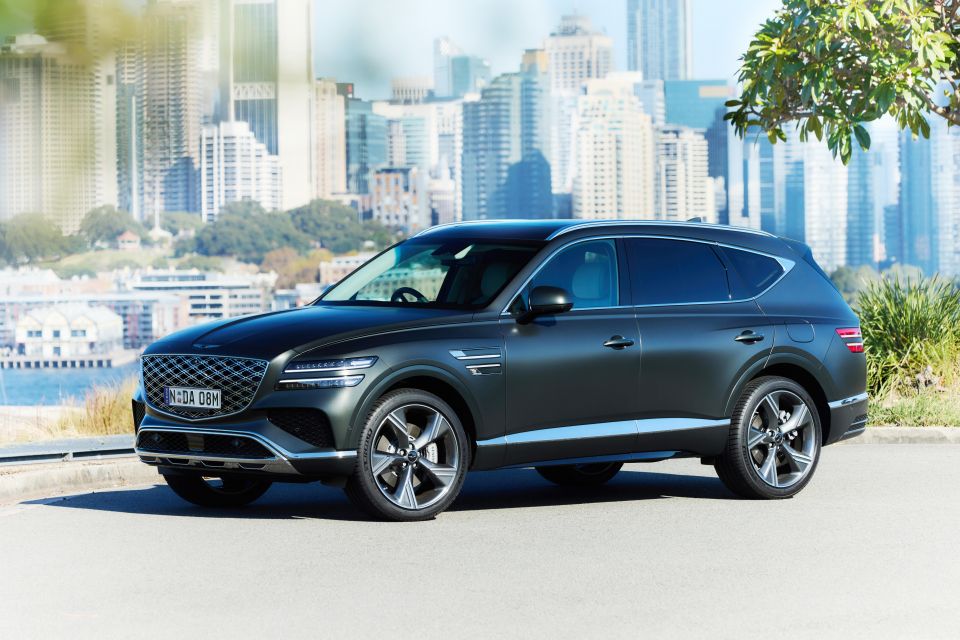
Korean publication ET Newsexpects the first GV80 electric prototype to begin testing sometime in the first half of 2025. After that, it’s expected to enter mass production in the second quarter of 2026.
Like the GV90 it’ll reportedly use the new eM architecture.
Genesis reportedly aims to produce 68,000 units annually after the second-generation GV80 launches.
While Genesis offers electric versions of its current GV70 and G80, the current GV80 doesn’t offer electric power.
It’s offered exclusively with a twin-turbo 3.5-litre petrol V6, following the local discontinuation of the entry-level 2.5-litre turbo-petrol four and the global axing of Genesis’ 3.0-litre turbo-diesel inline six.
MORE: Everything Genesis GV80
There are currently internal-combustion and EV options available for the GV70, but Genesis is reportedly developing an extended range electric vehicle (EREV) replacement for the near future.
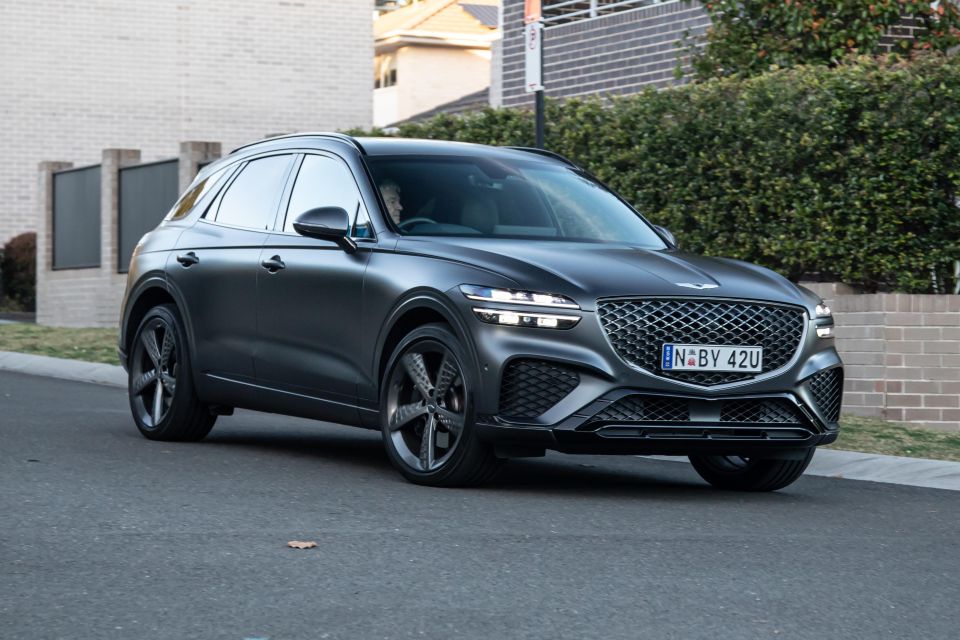
The GV70 EREV is expected to incorporate both a battery – potentially a large 40kWh pack – and an internal combustion engine, giving a potential total driving range in excess of 900 kilometres.
On battery power alone, the next GV70 will reportedly be able to cover more than 200km. For comparison, standard plug-in hybrids generally utilise smaller batteries and can travel around 40 to 80km on pure electric power.
In line with Genesis’ switch to an EV-only lineup, the Korean Car Blogsuggests GV70 EREV will bridge the gap from current internal combustion to electric vehicles in the future.
MORE: Everything Genesis GV70
The GV60 is currently Genesis’ only car built on a dedicated EV platform, meaning it’ll likely survive as the brand shifts away from internal-combustion power.
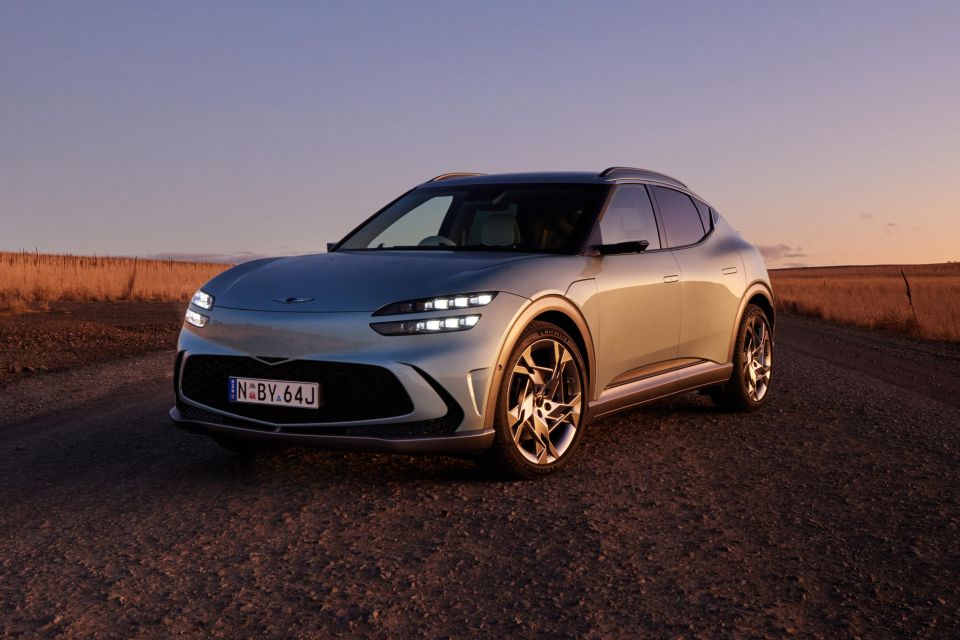
It’s currently available in two dual-motor all-wheel drive variants on HMG’s e-GMP architecture, which is shared with the Kia EV6 and Hyundai Ioniq 5. It’s capable of a maximum output of 360kW with 700Nm of torque in its top Performance variant, and is powered by a 77.4kWh lithium-ion battery pack.
The GV60 is also capable of a claimed range of 470km on the WLTP cycle in its base AWD spec and 466km with the Performance.
The GV60 first entered production in 2021, and has yet to receive a mid-life update. A revised version has been spied testing, however.
Only 191 Australian GV60 examples were sold in 2023, and estimated annual production numbers have not been outlined by Hyundai.
MORE: Everything Genesis GV60
The G80 will reportedly be the only remaining Genesis sedan in a year’s time. While it currently offers internal combustion and electric power, it’ll likely be another to go fully electric in its next generation.
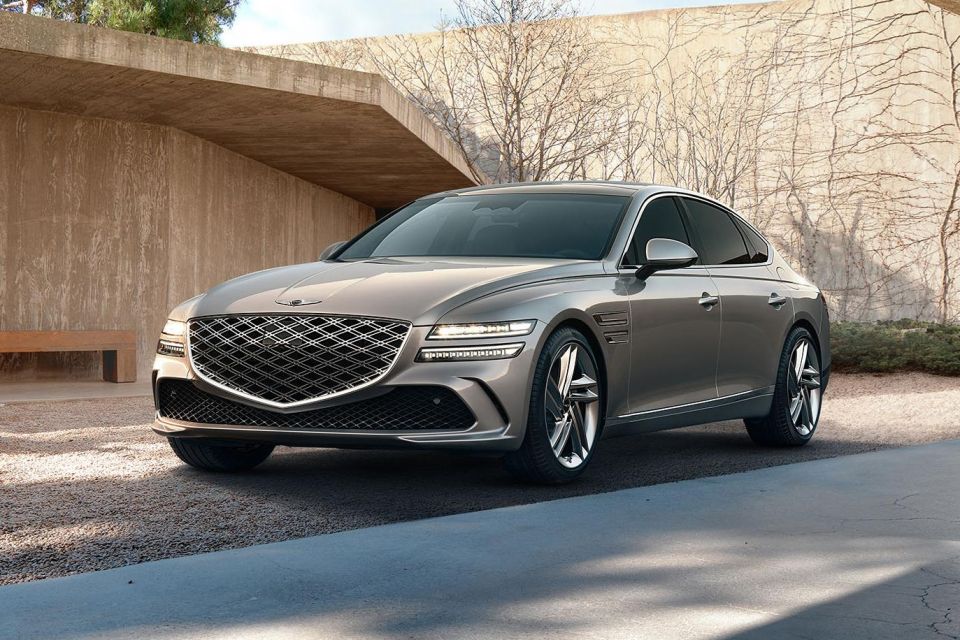
A mid-life update, due here mid-year, brings some tweaks to its suspension, as well as an overhauled interior and a mild exterior update.
It’s available with a turbo 2.5-litre four-cylinder and a twin turbo 3.5-litre V6, both mated to an eight-speed automatic transmission. There’s also an Electrified version with pure electric power.
Genesis recently revealed hot Magma concept versions of both the petrol-powered G80 and the Electrified G80 EV.
The current, second-generation G80 entered production in 2020, and rivals the likes of the BMW 5 Series and Mercedes-Benz E-Class.
Though it’s not a strong seller in Australia – just 51 were sold here in 2023, against 507 BMW 5 Series models – it has technically been Genesis’ best-selling vehicle since the brand’s inception.
It made up more than one third of the brand’s global sales from 2015 to 2023.
MORE: Everything Genesis G80
The loser in all this is the G70, which will reportedly soon meet its end as plans for a second generation have been scrapped.
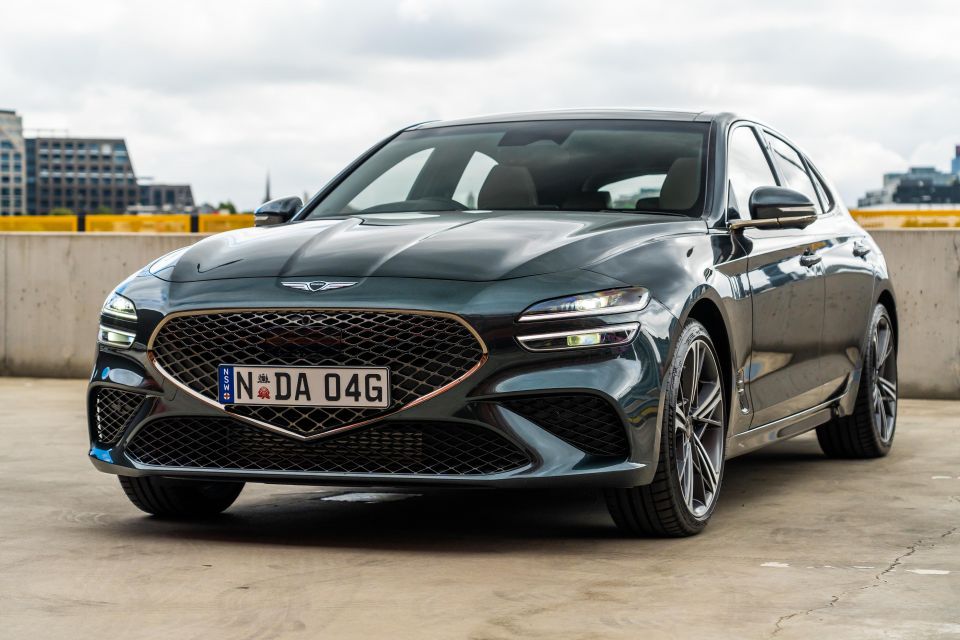
Per a report by the Korean Car Blog, the early stages of development for a second-generation G70 saw Genesis leaning towards a much bigger vehicle, which would have made it too similar to the G80.
That, along with declining sales in Korea, has reportedly led Genesis to cut a new model from its plans.
MORE: Everything Genesis G70
Where expert car reviews meet expert car buying – CarExpert gives you trusted advice, personalised service and real savings on your next new car.
Max Davies is an automotive journalist based in Melbourne, Australia. Max studied journalism at La Trobe University and stepped into the automotive world after graduating in late 2023. He grew up in regional Victoria, and with a passion for everything motorsport is a fan of Fernando Alonso.


Andrew Maclean
6 Days Ago
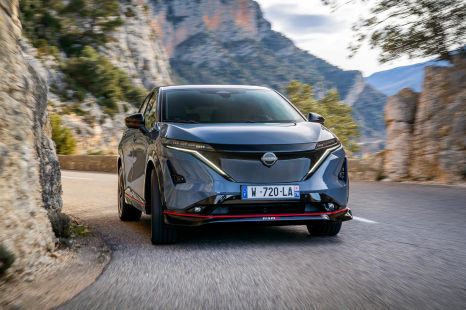

Shane O'Donoghue
5 Days Ago
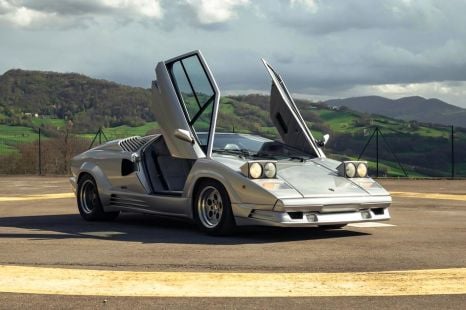

Anthony Crawford
4 Days Ago


Matt Campbell
3 Days Ago


James Wong
2 Days Ago


Max Davies
17 Hours Ago